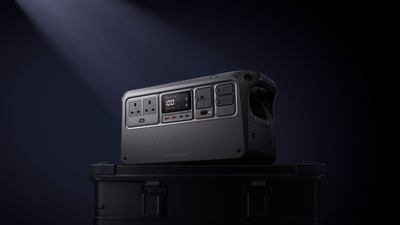Why Should I Do Drone Training?
- by Stefan Gandhi
In the fast-evolving skies of the UK drone market, you might own a drone or be considering one and still ask, why invest in formal drone training? If you are a creative hobbyist, a professional surveyor, a travel enthusiast capturing landscapes or a business operator seeking commercial advantage, drone training unlocks far more than just the ability to fly. From safety and compliance to capability and credibility, the reasons to train are compelling.
Strengthening Safety & Compliance
Flying a drone is thrilling, but it is also a responsibility. UK regulations require operators to understand airspace, altitude limits, proximity to people and property, and risk-assessment procedures. Without training you are far more likely to breach one of those rules, perhaps inadvertently, which can result in fines or even suspension of operations. A structured course immerses you in the legal fabric and the practical decision-making required for safe flight.
Training also helps you learn the correct pre-flight checks, weather evaluation, emergency procedures and responsible behaviour around people and animals. These practices reduce both risk and liability. Clients and insurers in commercial work increasingly look for operators who have formal training because it shows the operator accepts accountability and operates to standard.
Enhancing Your Capability & Creative Reach
For hobbyists and creatives, training is the gateway to more than just flying and filming. It enables you to unlock cinematic moves, advanced photography perspectives and even data capture workflows. You learn how to get smooth tracking shots, manage lighting conditions from altitude, choose the correct flight paths and end up with high-impact footage or imagery that stands out.
On the professional side, training arms you with competencies that go beyond simple flying. These include mapping and surveying techniques, thermal imaging applications, inspections and data capture for construction and infrastructure. All of these open new revenue streams. The skills you pick up can transform a drone from a consumer gadget into a tool for precision and insight.
Gaining Professional Credibility & Business Edge
If you are offering drone services commercially, you must elevate from hobbyist status. Clients will ask for evidence of training, insurance and authorisations. Completing formal training helps you present as a credible operator, not merely a drone padawan. It builds trust, especially in sectors like surveying, construction, real estate or inspection.
Moreover, training often helps you stand out from the crowd. Many operators may simply fly without formal certification. If you hold a recognised qualification, you signal that you know industry best practices, regulatory standards and operational rigour. That helps you win clients, bid for contracts and justify higher fees.
Future-Proofing Your Skills In A Growing Industry
The drone industry is growing rapidly. Applications are diversifying across film, agriculture, inspection, renewables and logistics. With that growth comes higher expectations for operator expertise. Training sets you up for that trajectory. It gives you frameworks to build on, logic to apply to new scenarios and the touchpoints to upgrade as the technology evolves.
By investing now you position yourself for future opportunities such as flying heavier drones, flying beyond visual line of sight (BVLOS) operations or working in regulated or specialist sectors. In short, you are not just training for today, you are preparing for what comes next.
Reducing Costs & Increasing Efficiency
Formal training may seem like a cost, but in many cases it saves you money in the long term. A trained pilot will make fewer mistakes, avoid damage to equipment, avoid regulatory fines, avoid downtime and fly more confidently and efficiently. For commercial use especially, being competent means landing a job in less time, delivering data in less time and doing so with fewer interruptions.
In inspection and infrastructure sectors, research shows drones reduce downtime and cost compared with traditional methods. Training ensures the drone is used at full potential with minimal risk.
Segmented Benefits By User Type
Creative Hobbyists
Training elevates your footage from 'nice' to 'cinematic'. You learn composition from the air, control flight with confidence and exploit drone features that many casual users overlook. The result is imagery and video that look professional, even if you are flying for fun.
Professional Users
You gain skills to integrate drones into your workflow, from site planning to data capture, post-processing, risk management and reporting. Training ensures you know how to apply the drone as a business tool rather than just a novelty.
Outdoors Enthusiasts
Drones allow you to tell adventure stories from the air. Training ensures you can handle wind, variable terrain, remote launches and tricky recoveries. You fly safe, you capture more, you come back unscathed.
Family Or Gift Buyers
If you bought a drone for family use, training helps ensure safe fun. You understand the rules, you avoid accidents, you teach younger pilots responsibly and you can unlock more advanced manoeuvres with confidence.
Travel Enthusiasts
A drone expands your travel storytelling with aerial panoramas, hidden vantages and sweeping vistas. With training you remain compliant across UK and international regulations, travel lighter, fly smarter and return with footage that wows.
High-Investment Hobbyists
If you invest in premium rigs, you want to get the maximum return. Training sharpens your skills, ensures your gear is used to full potential and opens up avenues for semi-professional work if you choose.
Law-Conscious Operators
You operate with eyes on compliance, including flights near people, public spaces or commercial use. Training ensures you understand your obligations, record keeping, authorisations and safe execution.
FAQs
Do I need training to fly a drone in the UK?
You need to have the relevant remote pilot competency certificates if you fly commercially. Even for hobby flying, you must register your drone and get a flyer ID if it weighs over 250g under UK rules.
What is the difference between A2 CofC and GVC?
A2 Certificate of Competency (A2 CofC) is aimed at flying in less complex situations within the open category. GVC (General Visual Line of Sight Certificate) is for the specific category and enables more advanced operations, heavier drones and commercial workflows.
Can I just watch YouTube videos instead of taking formal training?
You could watch videos, but formal training offers structured learning, recognised certification, practical assessments and legal compliance. That adds credibility, skill depth, risk reduction and insurance benefits you will not get from casual viewing.
Will training help me get work in drone services?
Yes. Training provides industry-recognised credentials, helps you present yourself professionally, improves your skillset and shows clients you understand operations, safety and data workflows.
How long does drone training take and what does it cost?
Duration and cost vary widely depending on the course type such as online, classroom or practical, the qualification level and whether you include additional modules like thermography, mapping or inspection.
Is online training sufficient or do I need flying practice?
Online modules can teach theory, regulation, risk assessment and data workflows. However, practical flight assessment remains critical for real-world competence. A comprehensive course combines both.
Conclusion
Investing in drone training is not just an option in today’s UK drone scene. It is a strategic move that elevates your safety, capability, credibility and commercial edge. If you are flying purely for fun or running a professional operation, the benefits are clear. Better skills, stronger compliance, enhanced opportunities and fewer risks. Do not settle for being a casual flyer when you can step up to become a confident and capable operator.
Visit the Coptrz official online store here to choose the right training course for you, from A2 CofC and GVC to specialised thermography knowledge and more, and take your drone mission to new heights.




